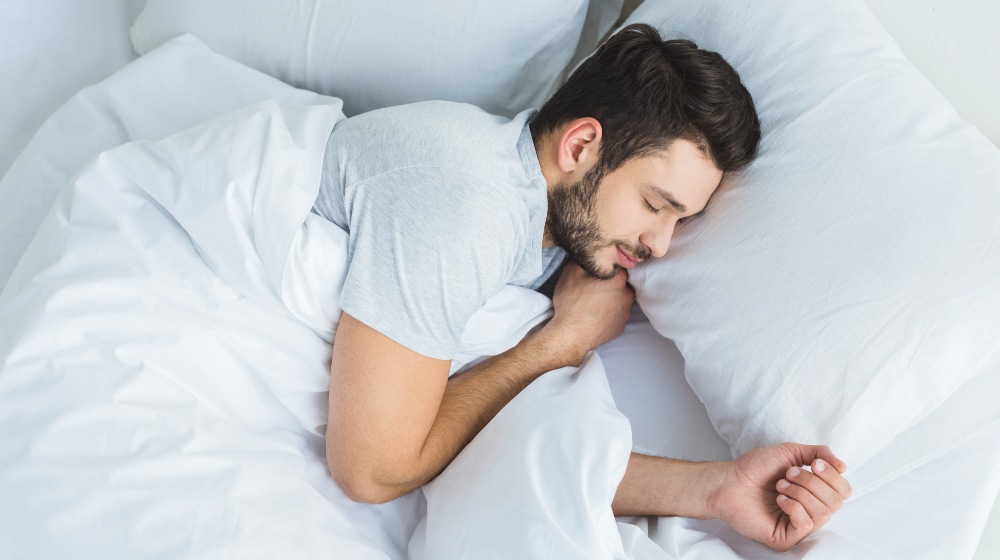Sleep Hygiene: 10 Effective Tips for Getting a Good Night’s Sleep
Sleep is necessary to recharge your physical and mental health. However, when you find yourself just tossing and turning all night, practicing good sleep hygiene can help resolve your problem.
Follow these 10 sleep hygiene tips to achieve a restful night's sleep.
RELATED: Sleep Apnea Surgery FAQ | Treatment, Side Effects, and Recovery
Healthy Sleep Tips: 10 Tips to Sleep Better at Night | Sleep Hygiene
1. Lessen Your Daytime Naps
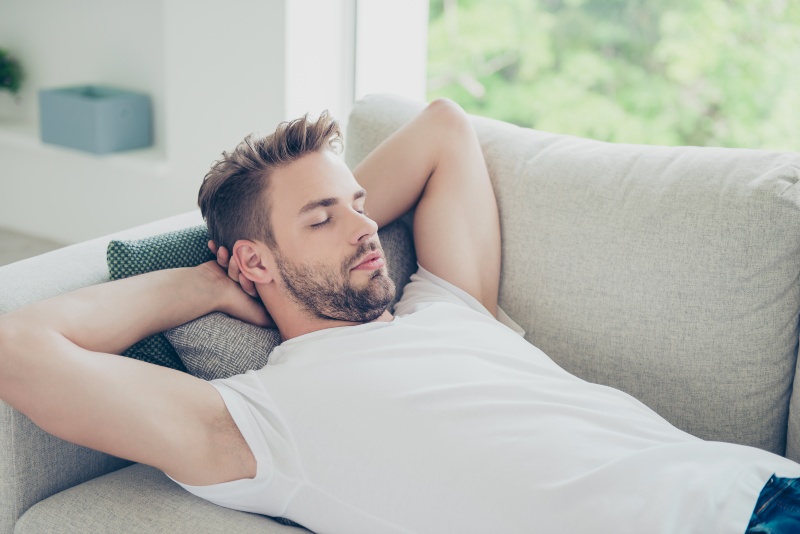
As much as possible, don't take (or at least be careful with) naps, especially during the day. Naps can negatively affect the restorative benefits of sleep.
Napping for too long or late in the day can confuse your body clock and disrupt your sleep schedule. This can make it more difficult for you to sleep at night.
Tip: If you're tired, try to rest earlier instead of taking a nap. However, if you opt to do the latter, do it post-lunch or early in the afternoon. The ideal nap length is 20 minutes.
2. Avoid Drinking Alcohol before Bedtime

A nightcap sounds relaxing, especially after a tiring day at work. However, if you think that drinking alcohol can help you get restful sleep, think again.
In fact, a study shows that alcohol stands in the way of getting quality sleep. Even small amounts produce stimulatory effects, increasing your awakenings. It can also lead to sleep apnea, a disorder wherein your breathing is interrupted while asleep.
Additionally, alcoholism is linked to insomnia, a disorder that makes it hard for someone to fall and stay asleep.
Tip: Avoid drinking alcohol three hours before bed.
3. Use Your Bed Only for Sleep (and Sex)
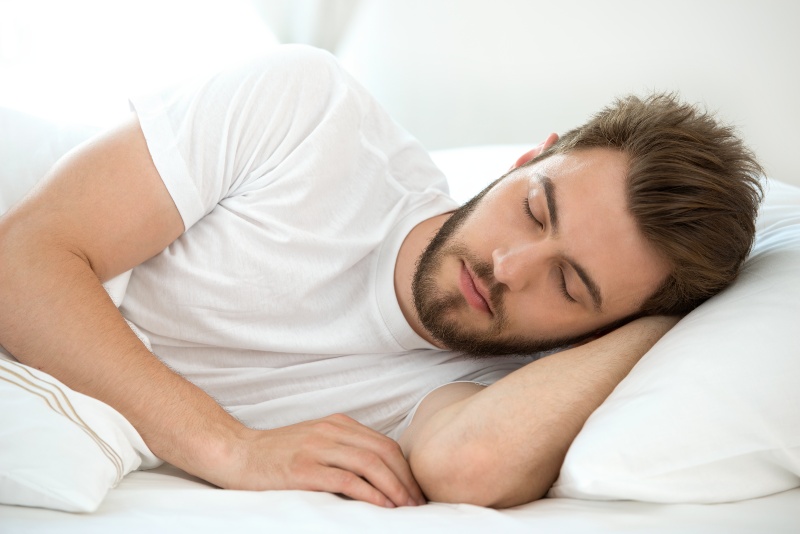
You want to associate your bed with rest and relaxation, so save it for two activities only — sleep and lovemaking.
While in bed, avoid watching television, talking on the phone, and using your gadgets for work. These activities will just make it difficult for you to de-stress and slow down.
In addition, these devices have bright screens and emit blue light. These can deceive your brain into thinking that it's still daytime. They also suppress melatonin, a hormone that helps your sleep-wake cycle.
Tip: Avoid watching horror movies in your bedroom. These shows can be unsettling, rather than relaxing, which can make it harder for you to sleep.
4. Increase Your Exposure to Sunlight

Upon waking, the first thing you need to do is open your windows and feel the natural light outside. Daily light exposure balances your circadian rhythm, a cycle that's part of your internal clock, which manages your sleep and wakefulness.
Sunlight also boosts your energy, as well as the duration and quality of your sleep. A study reveals that light exposure during the daytime can enhance sleep efficiency by 80% and lengthen sleep by two hours.
Tip: Have your morning coffee or eat your breakfast while seeing the light of day. While at work, you may also take breaks and spend some time outside your office. The bright sunlight won't only help you wake up, it can also maintain the health of your circadian rhythm.
5. Don't Exercise Before Bedtime
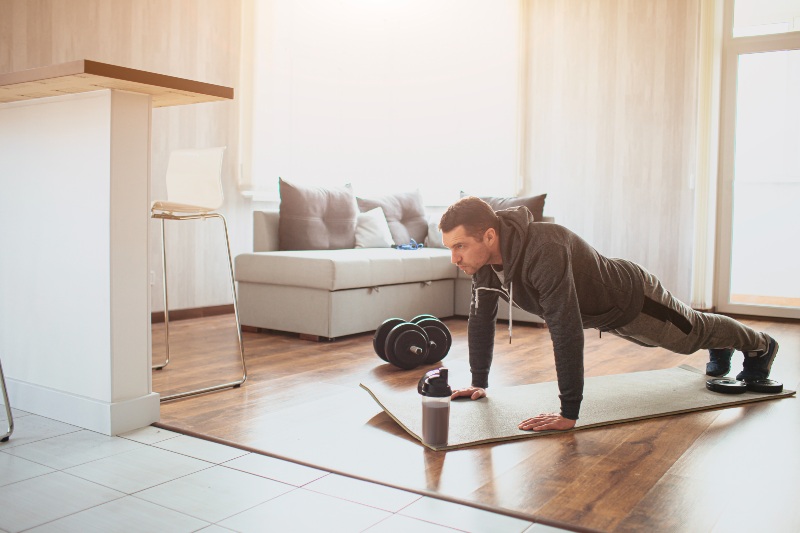
Physical activity improves your heart health and lowers your risk of developing diseases. You must do it regularly — but not too close to bedtime.
Although exercise improves sleep quality, performing it at night may result in sleep problems. High-intensity training done one hour before bed can make it longer for you to fall asleep. This is because exercise provides a stimulatory effect, which raises your alertness level, bursts your energy, and keeps you awake.
Tip: Do a light-to-moderate routine at least four hours before heading to bed.
RELATED: How Sleep Can Affect Your Date And Other Facts | Bulletproof Radio [LISTEN]
6. Create a Sleep-Conducive Environment
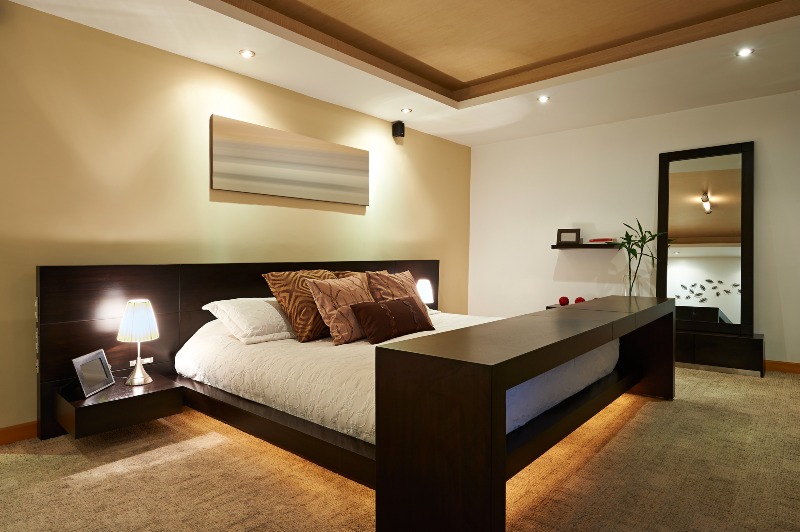
Your bedroom should be a place of peace, relaxation, and comfort. This may seem obvious, but it's often neglected.
Start with the composition of your bed. A quality mattress is essential to ensuring that your body can relax deeply and your spine is supported properly. Your pillow and bedding must feel warm and inviting.
Next, darken your room. Dim your lights to trigger your body to produce melatonin. You may also hang curtains to minimize distractions.
Also, maintain a moderate temperature and adequate ventilation in your room. You don't want your sleep to be disturbed by either too hot or too cold temperature.
Lastly, try essential oils and aromas. There are calming and soothing scents available in the market, such as lavender, that can freshen your room and help you fall asleep quickly.
Tip: If you can't block unnecessary light and get rid of noise, you may wear a sleep mask or use earplugs.
7. Be Consistent With Your Sleep Schedule
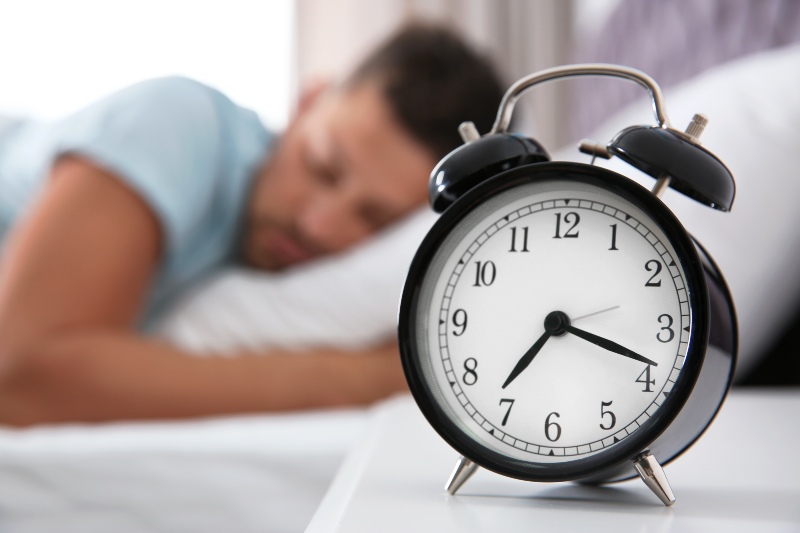
If you can arrange your appointments at work, you must also be able to fix your schedule for sleeping.
Try to get up and hit the sack at the same time every morning and every night. It would be difficult for your body to get used to good sleep habits if you don't stick to a schedule.
Having a fixed wake-up time actually contributes to a healthy sleeping pattern. Who knows, you might master waking up without the need for an alarm.
Get the recommended hours of nightly sleep based on your age. When you have to adjust your sleep schedule, make changes gradually so that your body can adapt to it.
Tip: Strictly follow your sleep routine, including weekends and your days off, so you can stay on track.
8. Limit Your Caffeine Intake
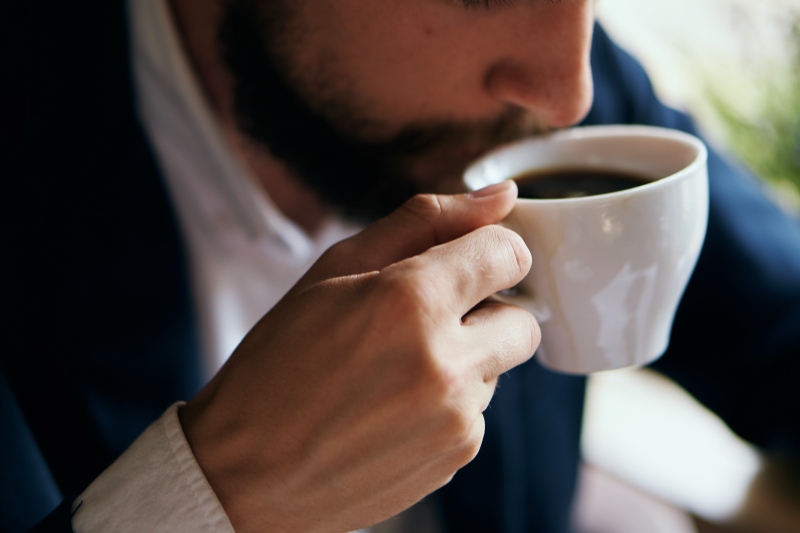
If you love drinking coffee because of the jolt of energy it provides, you may want to revisit your caffeine intake if you want to improve your sleep. Avoid that cup of joe after lunchtime or late in the day to sustain healthy sleep hygiene.
Half of that caffeine intake will stay in your system for five hours, and it takes five more hours for it to be decreased again in half. This means that if you sip coffee by 12 noon, there will still be 25% caffeine in your body come 10 PM.
Tip: Drink decaffeinated coffee if you're craving a cup of coffee in the afternoon or evening.
9. Craft a Routine Before Bedtime
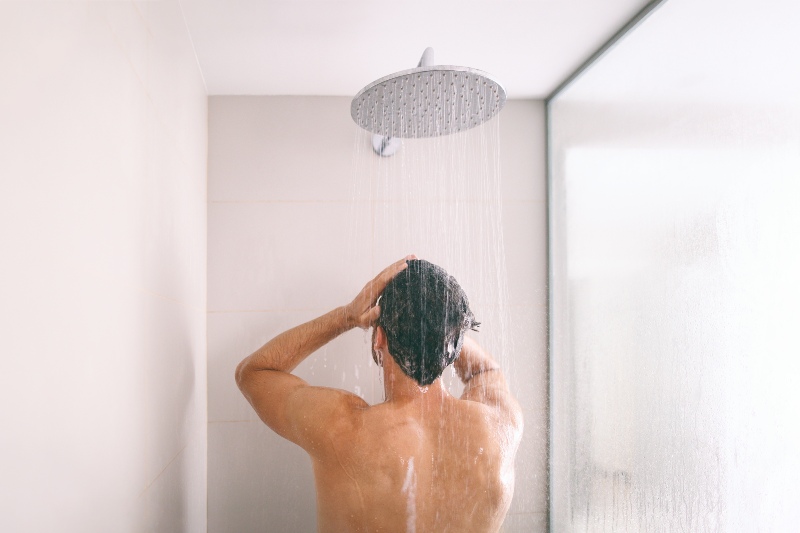
If you have a ritual to take care of your skin, you must also create some methods to achieve a relaxing sleep. Build a consistent pre-sleep routine that you'll perform every night, as it can help signal your brain that sleeping time is approaching.
Focus on relaxing and clearing your head. Don't force your mind that you need to fall asleep, as it can just stress and stimulate your brain. Additionally, try not to think of all the worries and stresses you have about work or school.
Take it easy for at least half an hour before your target bedtime. You may try to do the following activities:
- Have a warm bath
- Listen to calming music
- Do deep breathing exercises
- Meditate
Tip: You may also listen to audiobooks instead of reading to avoid bright light.
10. Don't Stay in Bed (if You Can't Sleep)
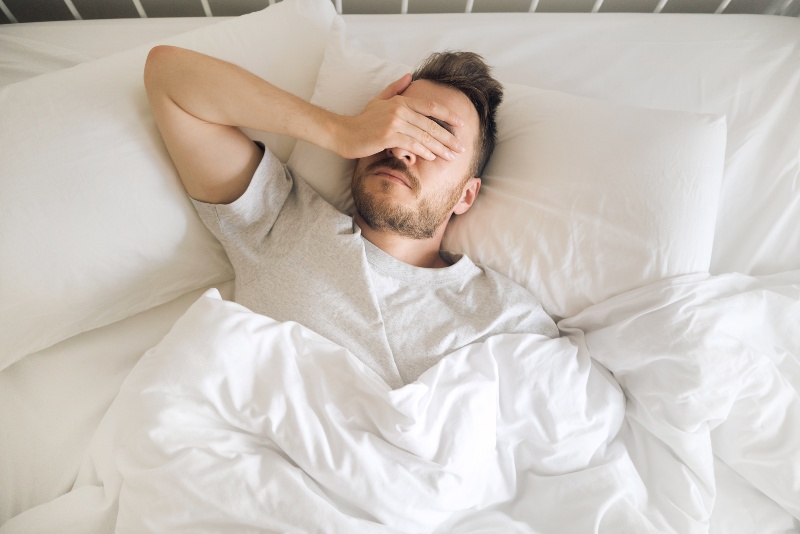
If you're already positioned in bed but still can't fall asleep within 15-20 minutes, get up, and don't try to sleep again. You want to connect your bed with sleep and relaxation, not with frustration and helplessness.
Instead of staying agitated in bed, do some relaxation techniques. Avoid looking at your phone or checking the time. Give yourself a few minutes to clear your mind before returning to bed.
Tip: Wait for yourself to feel fully sleepy, not just tired, before going back to bed.
Sleeping in a correct position must be a part of your sleep hygiene. Watch this video by LifeStyleVideos.com as Dr. Mark Halpern, a chiropractor, talks about the proper sleep position:
Implementing good sleep hygiene can optimize your health and make you feel high-spirited during the day. However, if you notice that your sleep problems are worsening, it's best to consult your doctor.
What other sleep hygiene principles do you have in mind? Please share your thoughts with us in the comment section below!
Up Next:
- 17 Fun & Relaxing Activities For Men Over 50
- 13 Relaxation Techniques To Reduce Stress
- Testicular Cancer Survivor, Matt Ode, Shares His Story of Hope, Purpose, and “Winning the Day” [PODCAST]
Calling all Health Buffs! If you’ve got the gift of keeping healthy and sharing this knowledge through writing, click here if you want to write for us.
Please stay connected with us on Facebook, Twitter, Instagram, and Pinterest, and make sure to join our community of healthy living and minded people here.
Trending
Get Updates
SIGN UP FOR OUR NEWSLETTER TODAY

Back and Shoulder Workout | 12 Shoulder Workouts

9 Foods for Brain Fog: The Best Foods to Eat for a Sharper Mind

10 Great Tips for Losing Weight after 40
Related

Back and Shoulder Workout | 12 Shoulder Workouts

